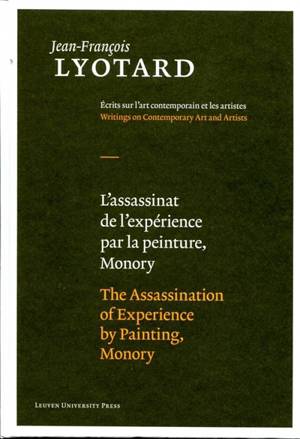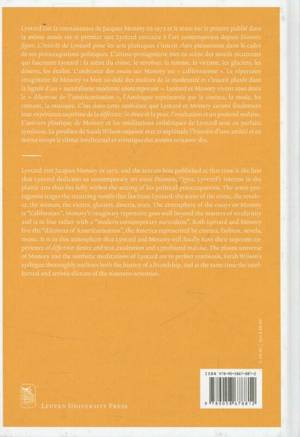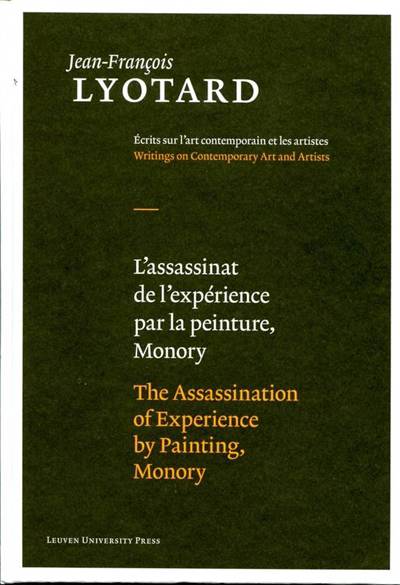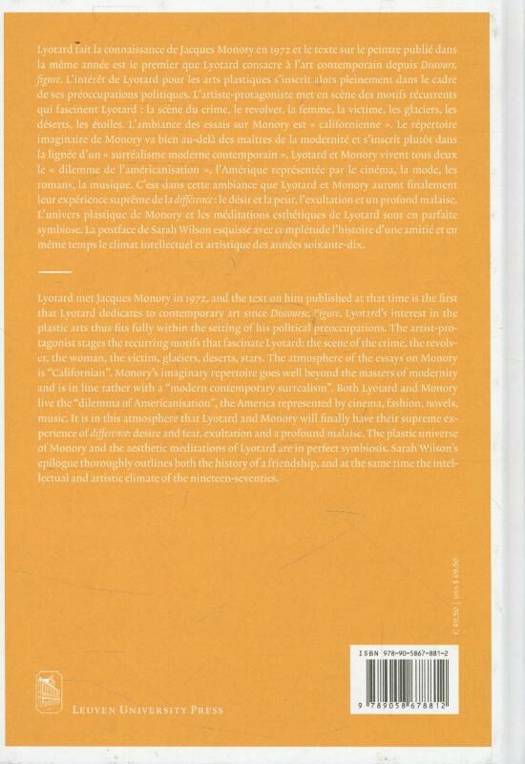
- Afhalen na 1 uur in een winkel met voorraad
- Gratis thuislevering in België vanaf € 30
- Ruim aanbod met 7 miljoen producten
- Afhalen na 1 uur in een winkel met voorraad
- Gratis thuislevering in België vanaf € 30
- Ruim aanbod met 7 miljoen producten


L'Assassinat de L'Experience Par la Peinture, Monory/The Assassination Of Experience By Painting, Monory
Jean-François LyotardOmschrijving
Lyotard met Jacques Monory in 1972, and the text on him published at that time was the first that Lyotard dedicated to contemporary art since Discourse, Figure. Lyotard's interest in the plastic arts thus fits fully within the setting of his political preoccupations. The artist-protagonist stages the recurring motifs that fascinate Lyotard: the scene of the crime, the revolver, the woman, the victim, glaciers, deserts, stars. The atmosphere of the essays on Monory is "Californian." Monory's imaginary repertoire goes well beyond the masters of modernity and is in line rather with a "modern contemporary surrealism."
Both Lyotard and Monory live the "dilemma of Americanization," the America represented by cinema, fashion, novels, music. It is in this atmosphere that Lyotard and Monory will finally evoke their supreme experience of difference: desire and fear, exultation and a profound malaise. The plastic universe of Monory and the aesthetic meditations of Lyotard are in perfect symbiosis. Sarah Wilson's epilogue thoroughly outlines both the history of a friendship and, at the same time, the intellectual and artistic climate of the 1970s.
Specificaties
Betrokkenen
- Auteur(s):
- Vertaler(s):
- Uitgeverij:
Inhoud
- Aantal bladzijden:
- 288
- Taal:
- Engels, Frans
- Reeks:
Eigenschappen
- Productcode (EAN):
- 9789058678812
- Verschijningsdatum:
- 15/01/2014
- Uitvoering:
- Hardcover
- Formaat:
- Genaaid
- Afmetingen:
- 165 mm x 231 mm
- Gewicht:
- 657 g

Alleen bij Standaard Boekhandel
Beoordelingen
We publiceren alleen reviews die voldoen aan de voorwaarden voor reviews. Bekijk onze voorwaarden voor reviews.












